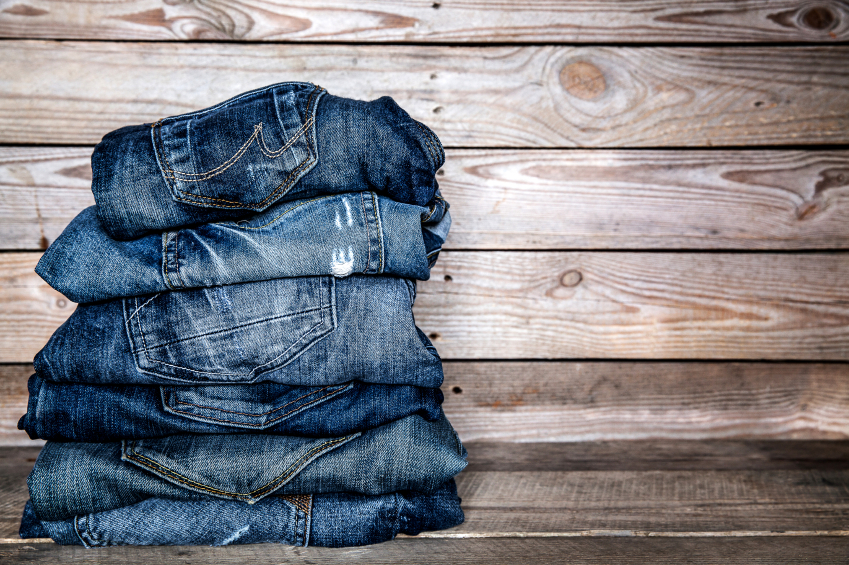 Have you ever wondered how much genetics play in the overall look, feel, and make-up of your teeth? Of course there’s no disputing the fact that genetics have an influence in just about everything we seem to know like our eyes, hair, height, personality, metabolism – and the list goes on and on. So logically, it should also play a role in our teeth, right? The simple answer is of course, Yes. But how much? Just how much does genetics influence the way our teeth look, feel, and function. How much can we blame our parents for the fortunes or misfortunes of our teeth, like having too many cavities, or having overly sensitive teeth, or having crooked or misaligned teeth? So when it comes to our teeth and smile, is it Bad Genes or Bad Habits?
Have you ever wondered how much genetics play in the overall look, feel, and make-up of your teeth? Of course there’s no disputing the fact that genetics have an influence in just about everything we seem to know like our eyes, hair, height, personality, metabolism – and the list goes on and on. So logically, it should also play a role in our teeth, right? The simple answer is of course, Yes. But how much? Just how much does genetics influence the way our teeth look, feel, and function. How much can we blame our parents for the fortunes or misfortunes of our teeth, like having too many cavities, or having overly sensitive teeth, or having crooked or misaligned teeth? So when it comes to our teeth and smile, is it Bad Genes or Bad Habits?
Crooked Teeth – Overall Alignment and Spacing
Let’s face it, we all love and want straighter teeth! Crooked teeth are aesthetically unpleasant and more importantly, can cause discomfort in your jaw when you eat or chew. So are crooked teeth a result of bad genes or bad habits? Lets start by looking at why teeth are crooked or misaligned. One of the main contributing factors of crowding or tight spacing of your teeth is the ratio between the size of your jaw and the actual size of your teeth. In other words, is your jaw the right size for your teeth? When you have big teeth trying to fit themselves into tight spaces, you’re going to have major crowding and alignment problems. On the contrary, having small teeth in a large jaw creates gaps between teeth. Having too large of a gap will allow teeth to shift and rotate over time resulting in crooked, misaligned teeth. Both the size of your jaw and teeth comes from the blueprint of your parents’ genes. So sorry Mom and Dad, crooked teeth is greatly influenced by bad genes. Fortunately, misaligned or crooked teeth can easily be fixed with orthodontic treatment. Ideally, treatment should be rendered at a younger age when the bones in your mouth are softer and can allow your teeth to gently move into its correct space. But if you’ve missed your chance at getting braces as a kid, don’t worry, though not ideal, it’s not too late to straighten your teeth. And if actual metal braces are not ideal given your lifestyle, there are other options like Invisalign or Clear Correct orthodontic treatments that might suit you better.
Tooth Decay – Tendency to Get Cavities
Some people measure the quality of their teeth by how many cavities they have. The more cavities they have, the worse the condition of their teeth. It’s a simple litmus test or indicator of having a bad mouth. This is because cavities are typically the result of having lots of bad bacteria in your mouth, which could also lead to other oral infections. Getting a cavity seems to obviously be related to your habits, right? Cavities are definitely greatly influenced by your habits and oral hygiene. The lack of proper oral care, like brushing and flossing will put you at a higher risk in developing cavities. Your diet, which is habit related, also plays a role in getting cavities. Eating an abundant of foods high in sugar or very acidic will definitely put you at a much higher risk. Although cavities are greatly influenced by your habits, your genes may also play a small role. You may have heard that some people are more prone to getting cavities than others. This is very much the case, and in a lot of ways, similar to when we compare people having a higher metabolism rate than others, and can consume much more calories without gaining as much weight. Teeth with stronger enamels can withstand bad environments longer. But over time, bad habits will eventually defeat good genes. When an entire family has a problem with cavities, this can sometimes be mistaken as bad genes. Remember, cavities has a component of bacteria. And bacteria can certainly be passed around through the kissing and sharing of food.
Weak or Brittle Teeth
Problems with weak teeth are typically related to chipping or breaking of teeth. Obviously a tooth will break when enough force is applied. However, with weak teeth, the breaking threshold is much lower. Any guesses as to whether weak teeth is related to genes or habits? Although genes do play a role in the strength of your teeth, your diet has a greater influence. Weak, brittle teeth is a result of a lack of calcium in your diet. Calcium helps build strong bones, and your teeth are bones. This is especially vital in children going through teeth development. Having a well balanced diet with lots of calcium from dairy products is an easy, abundant source of calcium. Besides chipping, weaker teeth are also more prone to getting cavities. This is due to the lack of strength or fight it has against attacks from cavity causing bacteria.
So there you have it, a lot more gets passed down from our parents when it comes to our smile than you might think. But as always, the way you care for your teeth can definitely help overcome any shortcomings in bad genes you get from your parents. The next time someone says, “you have your Mom’s smile”, at least you’ll know how much of that is actually true.
Thank you for reading and don’t forget to Like Us on Facebook. You’ll never miss another blog!
Written by Dr. Kim H. Nguyen

Owner of Mint Dental OC and is a leading dentist in Southern California.





